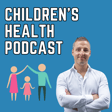
35 of 63 - Zinc and Copper Imbalance - Health Challenges Autistic Children Experience (see description for video presentation link and full lecture series)
Children's health consulting: https://christianyordanov.com/childrens-health-consulting/
Get 3 FREE video courses instantly when you sign up to my members' community here: https://members.christianyordanov.com/
The courses are:
- The Healthy Gluten-Free, Casein-Free Diet for Autism. ADHD, and Gut Dysfunction
- Nutrient Supplements for Autism, ADHD, and Children's Health
- Health Challenges Autistic Children Experience
You will learn a ton and there will be more educational content for parents on the free member plan. Members can also suggest topics for me to research and publish in the community platform. Join us today: https://members.christianyordanov.com/
The above 3 courses cover topics such as gut dysfunction and infections, clostridia bacteria, Candida, oxalates, methylation, excitotoxicity, zinc / copper imbalance, going gluten-free and how to do it well, heavy metals and chemical toxicity, probiotic supplementation, mitochondrial dysfunction, immune system dysregulation, neuroinflammation, and much much more. I even show you how to select high-quality supplements and avoid the junk and hype - with real examples and analysis of ingredients on screen...
Every parent of an autistic child must know this information that is why I want to share it with you for free. And parents with kids that have an any health complaint will also learn a ton. In fact, every parent will learn a lot of value information from each of these courses - so please help me share this information with more parents! Thank you so much.
Watch this presentation video directly here: https://zencastr.com/z/M_ETHOLl
Listen to the introduction/overview of this series so you can get the most out of it: https://zencastr.com/z/9VJYthUA
Links to my book Autism Wellbeing Plan: How to Get Your Child Healthy:
US Amazon: https://www.amazon.com/Autism-Wellbeing-Plan-Child-Healthy/dp/1916393004
UK Amazon: https://www.amazon.co.uk/Autism-Wellbeing-Plan-Child-Healthy-ebook/dp/B084GBBDL9
